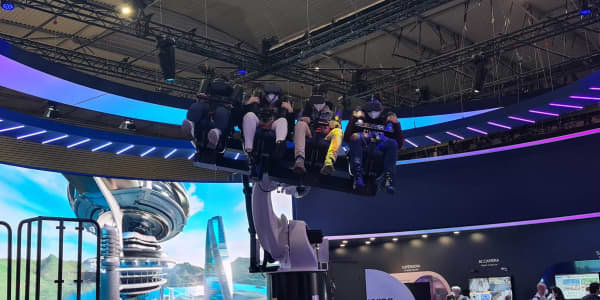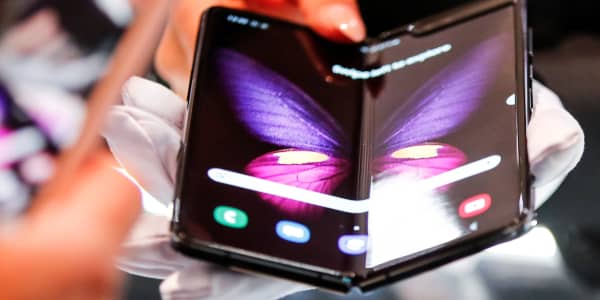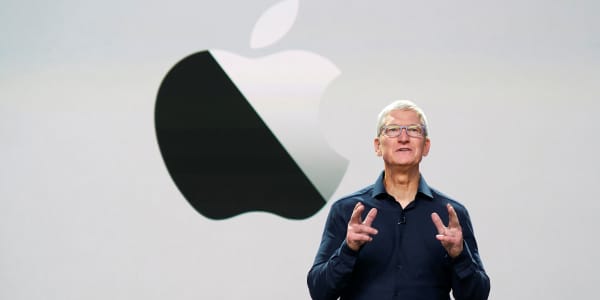Microsoft unveiled HoloLens 2, an upgraded version of its mixed-reality headset, on Sunday in Barcelona, in a bet that doubles down on the idea that businesses will increasingly use hologram technology in the workplace.
The HoloLens 2 headset will cost $3500 —$1500 less than the commercial price of the first HoloLens device Microsoft released more than four years ago. Microsoft is also offering a subscription option for $125 per month. The lower price tag could make the headset more attractive to Microsoft's commercial audience.
"This new medium is just the beginning of experiencing what's possible when you connect the digital world to the physical world, to transform how we work, learn and play," Microsoft CEO Satya Nadella said at the launch event in Barcleona.
Mixed reality, or augmented reality, is a technology that overlays digital images like holograms onto the real world. Microsoft's new wireless mixed reality headset also includes an expanded field of view twice as big as the previous device.
Microsoft also said the latest version is three times more comfortable than before.
Other key features of the HoloLens 2 include:
- Real-time eye tracking
- See-through holographic lenses
- Qualcomm Snapdragon 850 processor
The HoloLens 2 launch comes amid controversy over Microsoft's $480 million deal to sell its mixed reality headsets to the U.S. Army. On Friday, a group of Microsoft employees wrote an open letter to CEO Satya Nadella and chief legal officer Brad Smith saying they refuse to create technology used for "warfare and oppression."
The letter said: "We are alarmed that Microsoft is working to provide weapons technology to the US Military, helping one country's government 'increase lethality' using tools we built. We did not sign up to develop weapons, and we demand a say in how our work is used."
Microsoft is one of several companies investing in virtual reality (VR) and augmented reality (AR) devices. Facebook's Oculus released its $399 Quest headset last fall, while startup Magic Leap has developed its own $2295 headset. Chinese tech giant Huawei told CNBC last November it plans to introduce augmented reality glasses in the next one to two years.
The high prices for these devices is one reason the technology has failed to go mainstream among consumers. Sales of VR and AR devices rebounded in the third quarter of 2018 after declining for four consecutive quarters, according to market research firm IDC.
Microsoft's strategy has been to target a business audience that might be willing to invest in a bigger price tag.





